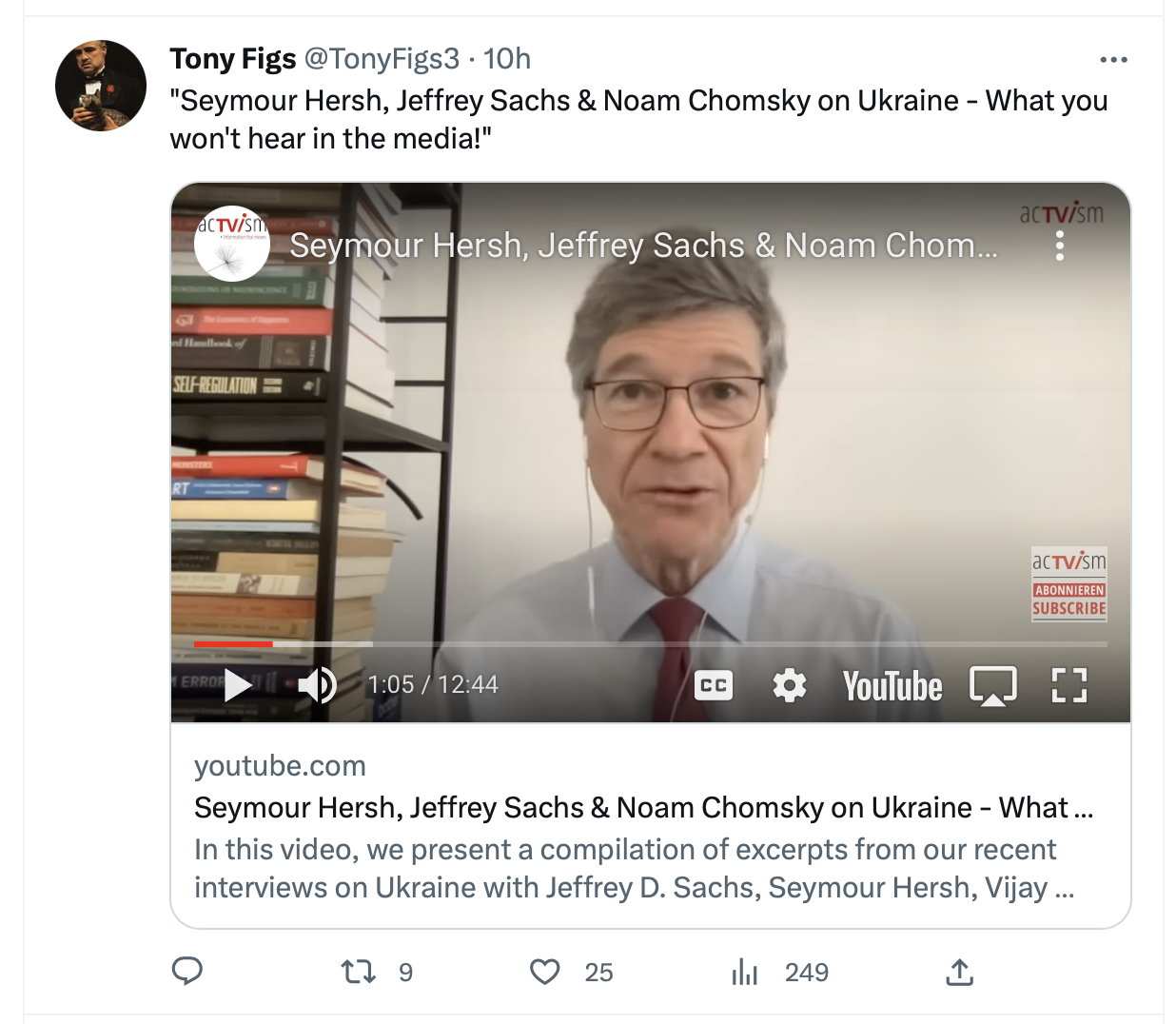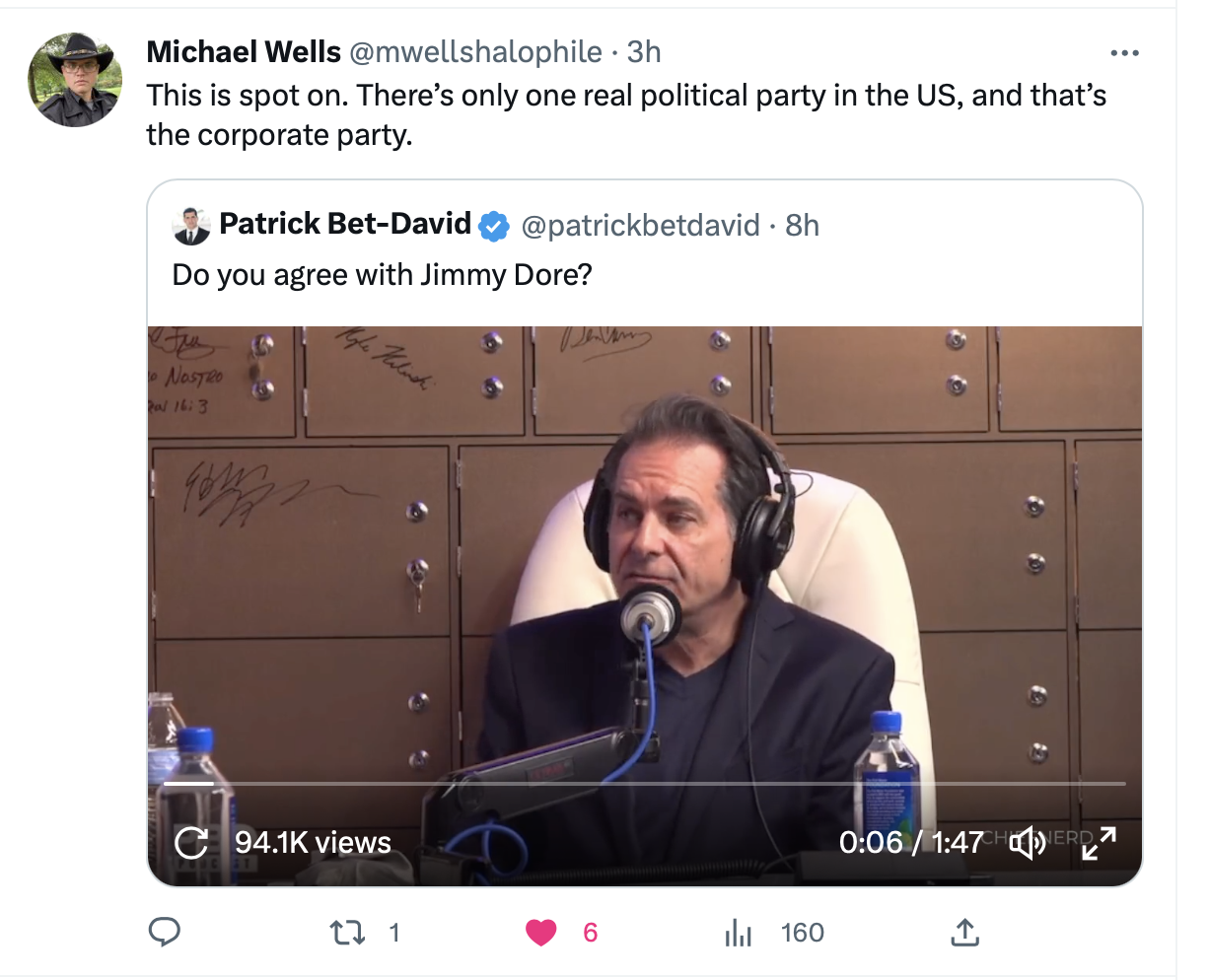Jimmy Dore Offers Some History Regarding the Ukraine War
Jimmy Dore recently appeared on Ep 237 of the PBD Podcast with Patrick Bet-David. I transcribed a portion of his interview, in which is described the relevant history of Ukraine as it pertains to the ongoing war. He contrasts the vast military aid the U.S. if providing to Ukraine to the desperate economic situation of millions of Americans.
Jimmy Dore:
Well, it's obvious that they don't want you to know the real history. They don't want you to know that when Germany was allowed to reunify the promise from NATO to Russia was that we won't expand NATO. And then of course, it did. I think there's thirteen more countries that they put it into NATO. And now they wanted to put Ukraine into NATO or threatened to do that. That would be like if Russia got into a military alliance with Mexico and they wanted to start putting military bases in Mexico. We wouldn't allow that we wouldn't allow it. And just like what happened with Cuba with the missile crisis in the 60s, we wouldn't allow stuff like that. But we're doing that and they don't want you to know that NATO is not a defensive, it is offensive. This is a war that was started and provoked by NATO and the West. Zelensky ran on peace. He brought on bringing the country back together, right? The Russian speakers in the east, the Donbas. But he didn't do it. Why? Because he got threatened by NATO and the ultra right, the Nazis, in Ukraine. And so they'll threaten to kill--he knows he's a dead man--if he does a peace deal with Russia. So that's why he won't. They had a peace deal in March and that's when Boris Johnson from the UK flew there and said, Hey, you better you don't do this. And he he killed the peace deal. So Russia is the one that wants peace in this deal. And Ukraine and NATO do not. They want to bleed Russia economically. And that's why they blew up the Nord Stream 2 pipeline. They've always said they were going to do it and they did it. For the life of me, I can't get why the European nations are going along with this. There was the foreign minister of Germany said I don't care about my people, if they don't want this. I care about the people of Ukraine. What leader of a country says they don't care about their own people, but they care more about somebody else's country? It's crazy what's going on.
People don't realize that NATO has provoked this. In fact, there was a peace agreement in 2014. The CIA helped overthrow the Ukraine Government. And then the people in the Donbas didn't want to go along with this coup'ed government, because the leader of Ukraine wanted to be friendly or economically with Russia instead of join, like the European Union, and that they couldn't have that right. So that's why they did a coup. And Russian speakers in the Donbas didn't want to go along with that coup. And so they kind of wanted to break away. The Ukraine Government started shelling the Donbas. And so they had a peace agreement called the Minsk agreements. That was supposed to give them independence. They were supposed to have their own elections and they were going to stop shelling them, but they never did. They ended up killing like 14 or 15,000 people in the Donbas over the last eight years.
And now it's been revealed that that peace agreement was never real. Merkel, the former prime minister of Germany, just admitted that the only reason they did that peace agreement was to give Ukraine enough time to build up its military. So when they finally did provoke an invasion, which is what they did, that they would have a military ready to fight Russia. People don't know this is what happens. They just think that one day Putin woke up and said, I want to go invade Ukraine, because I'm a maniac. And they think that he's the bad guy. He's acting rationally. We always knew he would do this. In fact, we were counting on him doing this. That's why we did what we did. And [Americans] don't know that Ukraine ramped up their bombing right before the war started last year. They doubled their bombing. They were really trying to provoke it. And they did it. They got it. They provoked it. And Russia would rather have a peace agreement and the rest of the world rather have a peace agreement. Not NATO. Not Joe Biden. Not the military industrial complex. That's where we are and people don't know that. That's what [Reporter Matt Lee] is saying: Hey, NATO's the one expanding. That's the reason why he said it. The reason why NATO's army is on the doorstep of Russia is because we moved, not Russia.
[More . . . ]


